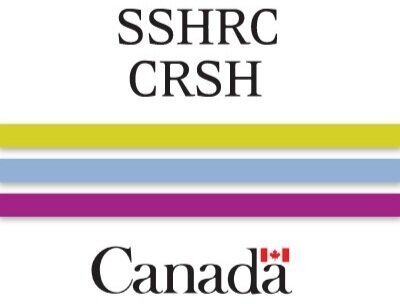
OUR RESEARCH
We’re interested in all things social.
At the Social Connections Lab, we study how social factors influence cardiovascular health and disease. We put the stories of patients, caregivers, family members, and healthcare providers at the forefront to develop effective solutions together.
Major themes in our work
-

Social Factors in Cardiovascular Health
We work to understand the social factors that are driving people’s health and leverage these factors to improve health outcomes.
-

Community Engagement in Research
We engage with patients, families, clinicians, and the public at different phases of the research process. This engagement improves the relevance, quality, and applicability of the research.
-

Qualitative & Mixed Methods Research
We primarily use research methods that focus on exploring people’s perspectives, stories, and lived experiences. This includes surveys, interviews, and focus groups.
A few of our current projects
The CARE-WELL project
Given the vast and often complex responsibility of being a caregiver to a loved one with heart disease, caregiver burden is very common. The role of social factors, such as health literacy, built environment, and social integration, on caregivers’ quality of life remain unclear. Exploring these contextual factors is needed to provide more information as to why some caregivers are able to ‘live well’ within their caregiving role while others are more at risk of developing poor health outcomes.
We will be surveying caregivers at the University of Ottawa Heart Institute to learn which, and to what extent, social determinants of health are related to caregivers’ quality of life.
The YOUNG-HEARTS project
The onset of cardiovascular disease presents several challenges for the patient, including complex medical management, emotional distress, and lifestyle and family-related adjustments – all of which may be heightened or experienced differently in patients who are parents to children. Despite the added complexities of parenting with a chronic condition, few studies have explored the concerns of parents with children (<18 years of age) as they navigate a new cardiovascular disease diagnosis. We conducted focus groups with parents (N=32), recorded and transcribed these interviews, and then analyzed the results using conventional content analysis (a form of qualitative analysis).
Parents noted several concerns, but chief among them was the lack of resources on how to appropriately communicate to their children the diagnosis, prognosis, and its potential impact of heart disease on the family.
Based on these results, our group, in collaboration with patients, caregivers, clinicians, and the Cardiovascular Health Psychology Laboratory, developed a guidebook on discussing heart disease with children and youth. We are currently working with the Impact Media Lab to develop an illustrated children’s book on living with a parent with heart disease.
The BRAIN-HF Project
People with heart failure may experience changes to their brain, their thinking, and/or their mental health. What we know about the connections between heart failure and the brain is driven by researchers’ questions. We have not yet considered the questions of those who are directly affects - patients, caregivers, and healthcare providers. We’ve partnered with the James Lind Alliance to conduct a priority setting partnership. Using surveys and a final in-person workshop, we will produce a top 10 list of research questions that people with heart failure, their support networks (families, partners, friends), and healthcare professionals agree are the most important for research to address on the ‘brain implications’ of heart failure. We will share these research priorities to funding agencies, healthcare leaders, and partner organizations to inform targets for future brain-heart research in Canada.
Our Steering Group includes 12 members, representing 6 provinces across Canada. We have partnered with several organizations for this project, including:
Thank you to our funders
OUR MISSION
Designing social strategies that improve health & wellbeing
Our goal is to understand the role of social factors in health, and determine the best ways to go about influencing health using social drivers. We do this by learning and listening to people and then developing solutions together.














